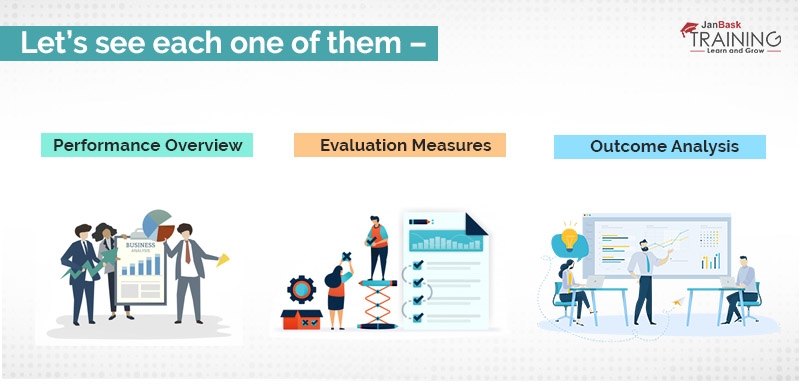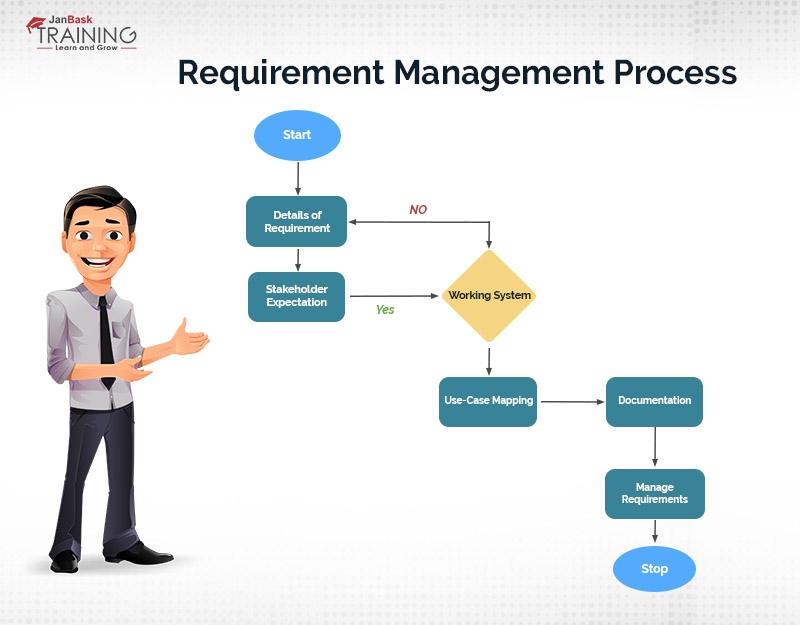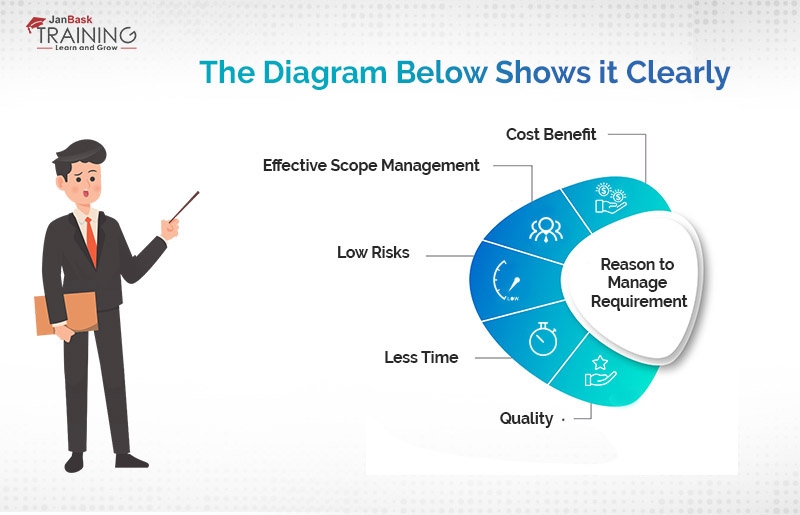11
JulInternational Womens Day : Flat 30% off on live classes + 2 free self-paced courses - SCHEDULE CALL
Business Analysis Monitoring comes into picture once business analysis planning is achieved. The business analysis monitoring focuses on determining that the business plan activities are performed effectively and overall delivery is not being impacted. Now the question comes how do you keep a check on business analysis plan?
So here Business Analysis Monitoring plays a major role because it keeps a check on the analysis which is being done, tracks down equal participation of all the stakeholders and see that all the information is being managed properly. The performance of analysis is constantly measured against business analysis and the proposed and approved business plan. Business Analysis Monitoring also maps any deviation which occurs during the journey of the business plan. In such cases, an alternative path is taken or corrective actions are being implemented. So Business Analysis Monitoring is equally important as business analysis planning for the success of the business project.
This blog will help you to understand the following details –
So with the overview what do you think? Why after following planning and monitoring business analysis it is required to identify the performance improvements of business analysis. It’s because it is the constant improvements and feedbacks which helps us to deliver the best in the market. The process of identification of business process improvement is applied to evaluate business analysis tasks and make the organization ready for any needed changes. There should be continuous check which can be recorded in a report format to have critical thinking on analysis which is performed.
There are various steps that need to be taken to identify the performance measures improvements. These are –
To perform the above steps there are various elements that need to be done.
Read: What Are The Requirements To Become A Business Analyst?

The Requirement Management Plan is an important document in project management that helps to identify the details of requirements, its analysis, documentation and how they are being managed. Its focal point is how to manage the changes to any approved business requirements.
As we had already studied in performance improvements that all these changes and management processes are handled via a set of iterations, even requirement management follows the same principle. These iterations help to ensure that elicitation, documentation, refinement, changes all are dealt with during the course of requirement lifecycle with a view of maintaining the overall success of the business project.
To manage requirements better, there should be a collective requirement process. These would include the following -
Let’s see what all details this plan comprises of :
As though based on the organization’s there could be many types of requirement management process but in general, the below diagram would help you to understand the basic overview of this process. Please note in case of software or hardware challenges, the system needs to be upgraded and that also becomes part of the requirement. Such a change in the system would definitely need approval from senior management.
Read: The Miracle Of CCBA - Certificate of Capability in Business Analysis

Read More: What Does a Business Analysts Do?
Now, there might be reasons to manage the requirements. The diagram below shows it clearly -

With the study so far, we came to know so much about analysis to be done. But then any analysis needs to be rated so that there are improvements to it. That’s why it is important to measure the performance of business analysis for constant improvements. The performance matrix helps business analysts to broaden their thoughts and redefine their skill sets by widening it.
The performance assessment helps to determine the difference between the ideal output of business analysis and the actual output. The variances between two would help to judge which one would be better for the end result. Ideally, the agreed output by all the partners should also be the actual output. In that, analysis done by business analysts is rated very high, as he/she is capable of foreseeing the best suitable feature for the future.
The management of this performance measure includes how to track the analysis plan, engagement of partners and associates, documentation, report building for each activity, and feedback from end-customers.
Read: Business Analytics vs Business Intelligence
Some of the basic elements involved in managing the performance :
These are reports, essential factors as they show the graph of business analysis. They can be in written format, verbal, formal or informal depending upon the type of organization and management.
Feedbacks from internal as well as external stakeholders actually give a viewpoint as to how requirements were followed. There are interviews done with clients to know their feedbacks and demo’s within the organization to understand their thoughts. Please make sure all feedbacks are captured in a written format. The reason being, they can be already known issues or over-expectations of the client which is not promised in the contract.
Input details would consist of planning, brain-storming sessions, documentation, use-cases, whereas output consists of the development, test-cases, quality of product and organized walkthroughs. All of these needs to be in sync to generate a very high-quality product.
Read More: Become Business Analysts
Thus, it would have been clear why business analysis monitoring is important and how it is being achieved. Business Analysis Monitoring is like a catalyst in the entire analysis and project management journey, increasing the quality of the overall product. So concisely, it helps to maintain the discipline of business needs while validating that none of the business goals are disturbed. With this note, I wish you had a great learning experience with us. Continue expanding knowledge and Happy Learning!!
Read: Business Analyst Salary: Know Your Worth in 2025 (US & Global)
 Pinterest
Pinterest
 Email
Email
A dynamic, highly professional, and a global online training course provider committed to propelling the next generation of technology learners with a whole new way of training experience.

Cyber Security

QA

Salesforce

Business Analyst

MS SQL Server

Data Science

DevOps

Hadoop

Python

Artificial Intelligence

Machine Learning

Tableau
Search Posts
Related Posts
10 Best Power BI Project Ideas To Boost Your Skills
![]() 1.4k
1.4k
Business Analyst Tutorials For Beginners & Experienced: A Comprehensive Guide
![]() 4.7k
4.7k
What is a Business Analyst? Definition, Functions & Real-World Relevance
![]() 584.4k
584.4k
Understand The Background Of Business Analysis Documentation Now
![]() 11.9k
11.9k
Business Analyst Career Path: Step by Step BA Career Roadmap
![]() 215.2k
215.2k
Receive Latest Materials and Offers on Business Analyst Course
Interviews